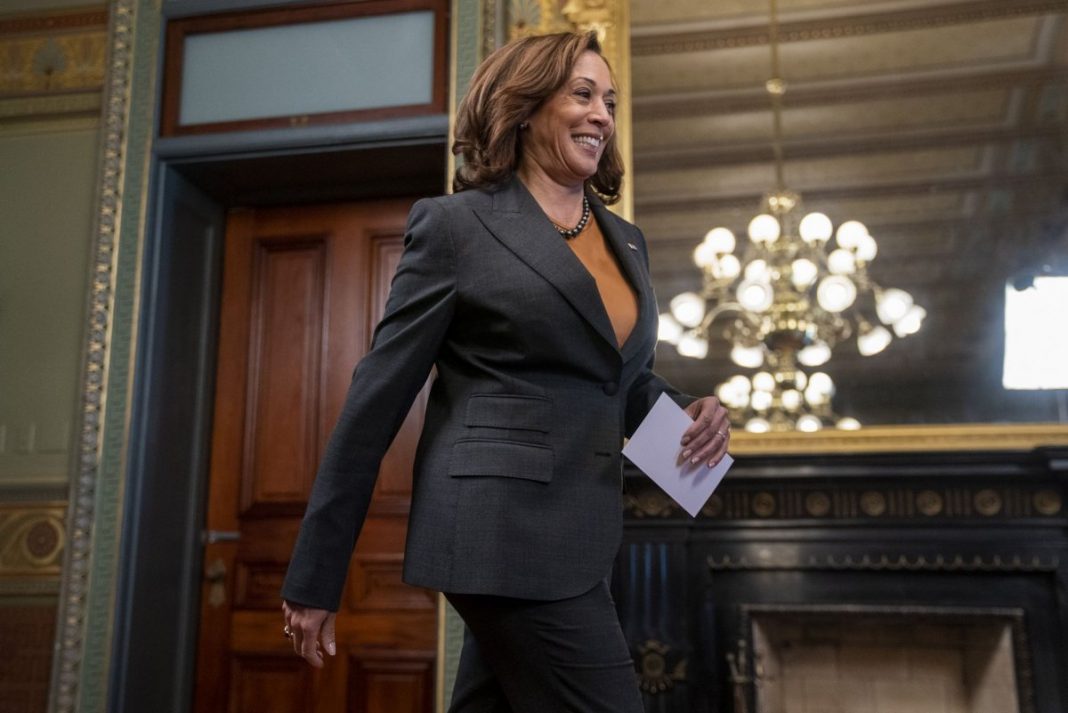
Nov. 23 (UPI) — Who runs the U.S. government?
Article I of the Constitution established the legislature, whose many responsibilities range from passing all laws; declaring war; appropriating monies; conducting oversight; and confirming executive appointees. But Congress is not operational. It does not have powers to execute its laws.
Only the president has “the executive power.” But what does that mean?
The president is head of state, government and party and the leader of the nation. Yet, given the scope of the duties of that office, who ensures that laws are fully enforced and policies are carried out, whether mandated by Congress or by executive decree?
Since George Washington, presidents have governed through a cabinet. Oddly, the Constitution makes no mention of a cabinet. The only reference in Article II is that the president “may require the opinion, in writing, of the principal officer in each of the executive departments, upon any subject relating to the duties of their respective offices.”
The assumption is and has been that each department is responsible for carrying out its duties. But in a complicated world, where no clear lines of demarcation always exist in a huge government, and with divided responsibilities and authorities, who is in overall charge to adjudicate and make key decisions on a daily basis? White Houses have relied on coordinating and other cabinet committees and subcommittees to carry out policies and execute the law.
Yet, the president simply does not have the time nor the experience in some cases to become a hands-on chief executive or operating officer, as in the private sector. Yes, when making the highest-level decisions on domestic and foreign policy, that must rest with the chief executive. However, for example, given the Inflation Reduction Act or chips bill, who ensures the full coordination and execution of those laws when more than one cabinet office is engaged across government?
In some White Houses, the president’s chief of staff has that chore. But the chief of staff is not confirmed or elected and in the pecking order is not constitutionally senior to cabinet officials. Hence, directing cabinet officials raises difficult political and personal issues.
Why does or should the U.S. government lack a chief operating or management officer? Is this because no one has raised this question, or whether such a role is incompatible with the Constitution’s authorizing only the president with “the executive power?” But suppose creating a COO makes sense. How might that be done?
Rather than amend the Constitution or pass a contentious law, the president has a very simple means of putting a COO in place tomorrow if he so wishes. The Constitution only grants one official standing in both the legislative and executive branches — the vice president, who is also president of the Senate. The vice president has no explicit responsibilities in either role except to replace the president if incapacitated or in death and casting a tie-breaking vote in the Senate.
In the past, competence and the potential to become president have not always been selection criteria. If President Joe Biden were to consider making Vice President Kamala Harris COO in charge of running the government on a daily basis, the reactions of late-night television comedians and Republicans, as well as some Democrats, would probably make that a non-starter.
However, beginning in 2024, why not consider using the vice president in a more substantial role?
The disadvantages are many, from finding the right, “politically correct” individual, to overshadowing the president. That means the vice president must possess the skill sets to serve as COO and not necessarily constituent appeal needed to win election. And the vice president would have to be able to work with members of the opposition party in Congress.
How would this work? In the executive branch, the president sets the decisions, priorities and policies. The vice president would ensure that the cabinet officers carry out those directives and orders, providing oversight and coordination.
In Congress, the vice president would engage the leadership of both parties in both houses to coordinate legislation and reach agreement where possible, bringing in the president only when that intervention was critical. Hopefully, this might temper excessive partisanship and extremism.
Is the United States capable of such a change? Future governance may depend on that.
Harlan Ullman is senior adviser at Washington’s Atlantic Council, the prime author of “shock and awe” and author of “The Fifth Horseman and the New MAD: How Massive Attacks of Disruption Became the Looming Existential Danger to a Divided Nation and the World at Large.” Follow him @harlankullman.
The views and opinions expressed in this commentary are solely those of the author.
